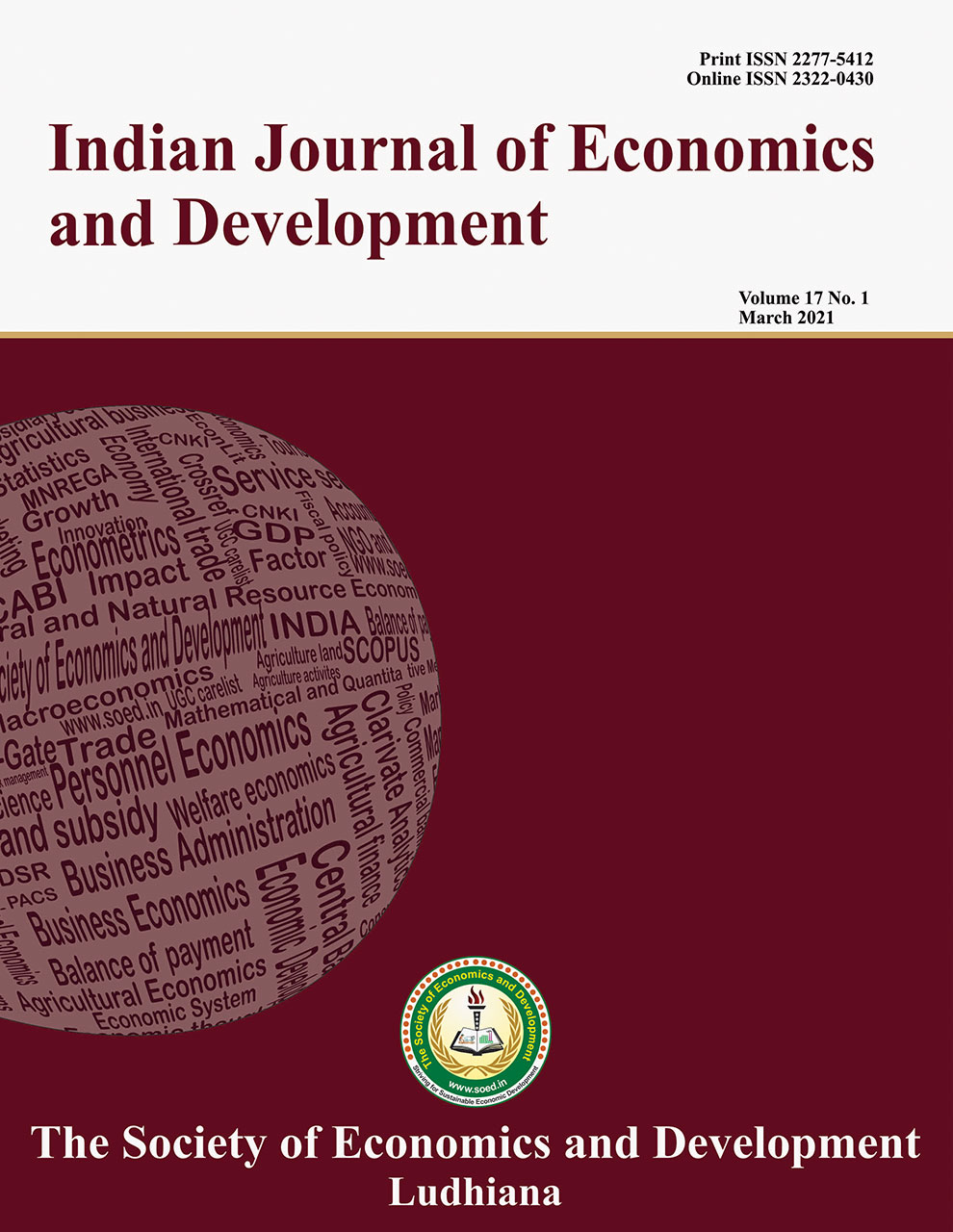Public-Private Partnership in Agricultural Extension: A Strategy for Increasing Farmers’ Income

Price: ₹ 1000
Author: Priyanka Sharma1, T.S. Riar2 and Lavleesh Garg1
Author Address: 1Research Scholar and Assistant Professor, Department of Extension Education, and 2Associate Director, Skill Development Centre,
Keywords: Agricultural extension, financial resources, income, public-private partnership.
JEL Codes: L32, Q16, Q18, Q19.
Abstract
Public-Private Partnership (PPP) involves a contract between public and private sector entities wherein the private entity provides a public service or project and assumes the substantial financial, technical and operational risk in the project with specified roles and responsibilities. The PPP approach supplements scarce public resources created a more competitive environment and helped to improve efficiencies and reduce costs. Public-private partnerships have seen a large increase over the years in part because local and state governments rely heavily on the growing number of non-profits to provide many public services that they cannot. At this time, Public-Private Partnership in agricultural extension is required in India to overcome the wide extension worker: farmer ratio in India, to reduce the financial burden on the government, to confine the role of village-level extension worker and for commercialization of agriculture. Review of various studies indicated the different types of models for PPP, which are public funded and private management, both sharing funding with private management, Public Facilitation and Private Funding, Sharing of funding and utilization of facility/information created by both, Public Infrastructure-Private Resources and Management, Public Facilitation- Private Funding and Private Management, Partnership Sans Financial Involvement. Studies also explored the potential areas for Public-Private Partnerships such as technology dissemination, Sale of Inputs, Processing and Marketing of Agri products, Infrastructure support for production, processing and marketing and Participatory Technology Development and Dissemination (PTDD). Agricultural Technology Management Agency (ATMA) is the best example of the site for the successful Public-Private Partnership in agriculture extension. The concept of Public-Private Partnership should be implicated in the potential areas which will prove helpful in reducing the burden on government financial resources as well as creating more opportunities and increase their income resulting in raising their living standards.
Description
Indian Journal of Economics and Development
Volume 16 No. SS, 2020, 477-481
DOI: https://doi.org/10.35716/ijed/NS20-062
Indexed in Clarivate Analytics (ESCI) of WoS
Priyanka Sharma1, T.S. Riar2 and Lavleesh Garg1
1Research Scholar and Assistant Professor, Department of Extension Education, and 2Associate Director, Skill Development Centre,
Punjab Agricultural University, Ludhiana-141 004
Corresponding author’s email: p.sharma14pau21@gmail.com



